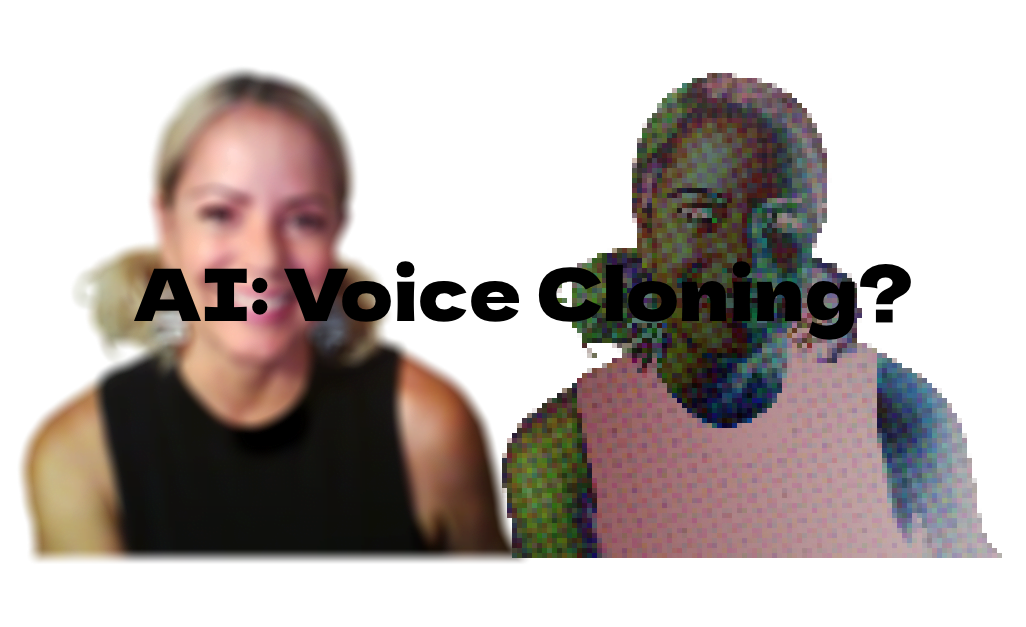 A Groundbreaking Moment
A Groundbreaking Moment
As a professional voice actor, I’m witnessing remarkable advancements in artificial intelligence (AI). It’s making a profound impact on the voice acting community. AI voice cloning, or synthesizing, technology has raised critical questions, concerns, and opportunities as well, within the profession.
It’s crucial for voice actors, video producers, casting directors, talent agents, and other industry professionals to be smart and fair to each other during the rapidly changing landscape.
In this blog, I’ll explore the impact of AI on voice acting overall, touching on narration, advertising, and eLearning. Keep in mind these are only a few of the impacted aspects of voiceover recording. Additionally, I’ll share the transformative concept of ‘fAIr Voices’ by the NAVA VO association as part of the way forward.
A Changing Landscape
AI revolutionizes voice acting as we knew it. AI is creating voice clones and synthesized voices that mimic human speech. This technology streamlines VO production, reduces VO costs, and offers flexibility in VO content creation. There are concerns regarding ethical and legal implications, such as unauthorized voice recordings and future job displacement.
We’ve already seen this with high profile cases. Earlier this year longtime voice actors Steve Blum, Kara Edwards, and Stephanie Sheh used Twitter to ask fans to let actors know when their voices are being used on AI voice apps. “I know AI technology is exciting, but if you see my voice or any of the characters that I voice offered on any of those sites, please know that I have not given my permission, and never will,” wrote Blum. Canadian voice actor Bev Standing sued TikTok for unauthorized use of her voice in its text-to-speech feature and the case was eventually settled. This highlights the need to protect voice actors’ recordings. Unauthorized websites copying and selling voices without permission are faced with strong opposition.
On the plus side, the AI voice “revolution” is charting new paths for voice recordings. Celebrities and non-celebrities can consider cloning or making a synthetic voice of themselves. This means at least our voice recordings might live beyond our human selves, and with our permission. And, it could give voice actors the opportunity to have that ‘clone of themselves’ they always wanted. Why? Book more jobs, with your voice clone working 24/7. If it’s in the voice actors control, and of a certain approvable level of quality, fair prices…. These are possibilities.
Narration
Narration is essential for storytelling. AI voices expand narrative possibilities. AI-driven text-to-speech (TTS) systems generate lifelike voices, providing an alternative for certain projects. While TTS technology offers convenience and speed, it currently lacks the depth, emotion, and human connection that a skilled voice actor brings to the table. However, skilled voice actors possess unique qualities and expertise. They bring depth, emotion, and human connection that current TTS technology lacks. So, their unique qualities and expertise ensure authentic and engaging performances.
Advertising
For decades, voice actors have played a vital role in delivering impactful commercial messages. While AI voice clones offer cost-effective solutions for some ads, do they or will they capture the nuances and emotional range of human voices? Voice actors, because they are humans, connect with audiences, conveying brand personality and authenticity effectively, if they and the team behind them are good.
ELearning
The eLearning industry works a lot with voice actors. Much of the work is collaborative, although not all. But in this collaboration, voice acting contributes to instructional content development. AI-powered voice synthesis again offers fast and effective voiceover recordings. Flexibility to make changes is high. Still, the synthesized or clone voice has limitations that do not match human capacity (yet).
‘fAIr Voices’
Ethical and legal concerns surrounding AI voice cloning require attention. ‘fAIr Voices’ is a coalition launched by NAVA, National Association of Voice Actors. They ask companies who work with voice actors to pledge the fair use of those voice recordings.
There is concern in the voiceover industry as synthetic voice creation websites have become more prevalent, allowing anyone to create a very realistic sounding version of any actor’s voice from shorter and shorter sound files. “Our voices are our livelihood,” says Vice President of NAVA, Carin Gilfry, “and if we don’t have control over how those voices are used, we can’t make a living.”
The #fAIrVoices campaign calls for:
- The ability for the performer/artist to actively consent to use of their voice being synthesized or cloned.
- Explicit limits on use of the results and proceeds of an AI/Synthetic voice.
- Ability to opt out, or term limits for AI/Synthetic voice use and Machine Training.
- Appropriate payment for use.
- Clearly denoted exclusivity.
- Safe storage and tracking of the performer’s voice, likeness, performance, and all products created from them.
- Clear and explicit terms of service regarding the training, use, and/or distribution of AI and synthetic voices on any website voice actors use or are members of.
Undeniable Impact:
Voice actors bring the human flaws, authenticity, emotion, and engagement to their voice recordings. Creative professionals and their companies can help prioritize a smooth transition to the future, hand in hand with voice actors. I suggest everyone offer transparency, respect, and maintain accountability with potential or actual AI utilization. Engage in discussions, collaborate with stakeholders, and consider ‘fAIr Voices’ concepts to bridge us to the future of voice acting.
By blending technology capabilities with human artistry, industry professionals deliver outstanding voice performances that captivate audiences. Let’s forge ahead, shaping a harmonious and innovative industry that embraces AI’s possibilities while preserving real human expression.

